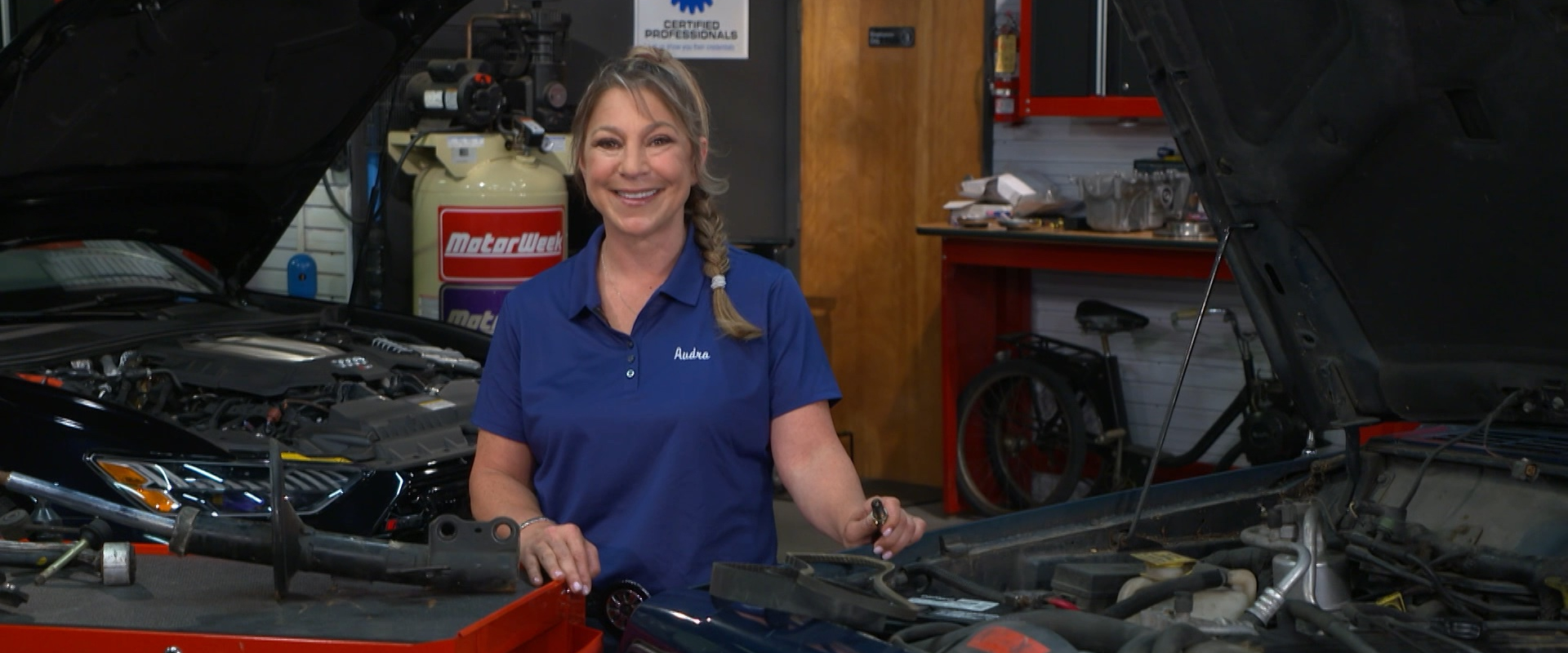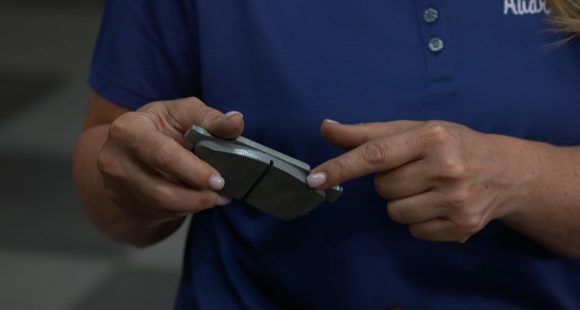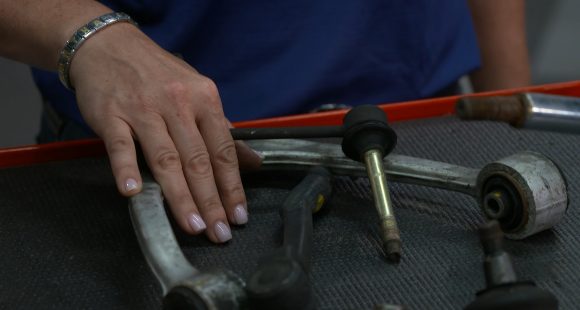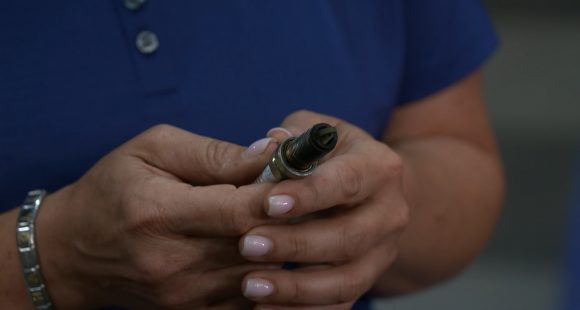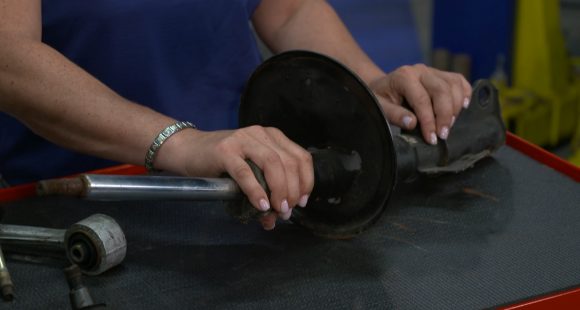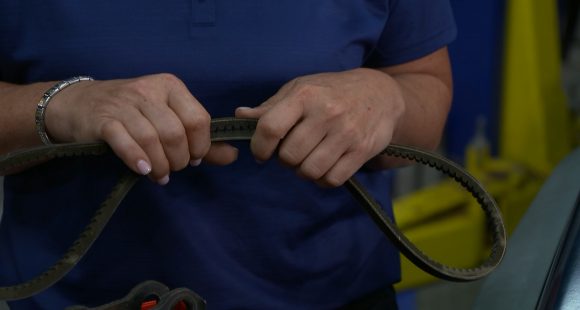What’s That Noise?
A check engine light is not a good thing, but sometimes trouble is all in the ears. Be it from the engine, suspension, brakes or whatever; it’s usually not a good sign when your car makes a new sound. But sound can also help solve car problems. Well, lets give Audra Fordin a listen on MotorWeek’s “Your Drive!”
[engine whines]
AUDRA FORDIN: Have you ever started your car and heard a new unpleasant sound? Well, snap, crackle, pop and grind may be fine for some breakfast cereals, but it is definitely not something you want to hear coming from your engine. Today, we’re going to listen to some sounds that you might suddenly hear, and what they could mean. Let’s start simple:
[brake grinding]
If you step on your brake and you hear a screeching sound, like that, chances are you need new brake pads. The squealing or screeching is thanks to a metal sensor that makes contact with the rotor when your pads are getting close to the end. If your pads only squeak once, like the car sat overnight, well don’t worry about it. The rotors may have been wet or had some surface rust. Cold pads, especially performance brakes, might squeak until they’ve heated up. Next up is another squeak. This one is coming from the suspension.
[suspension squeak]
If you hear something like that over every bump, odds are your suspension needs a good once over. It could be something as simple as a loose nut or a bolt. Make sure all your parts are torqued to spec, and especially if you have aftermarket components. If you’re still driving on original components, it may be a sign that they’re starting to wear. So, reference your odometer and your owner’s manual for a checkup. Getting close to 100,000 miles? Don’t be shocked if your shocks or struts need to be replaced. Alright let’s listen to the next sound.
[belt squeal]
Another squeal, but this time it’s consistent with the engine’s idle, and that is coming from under your hood. The engine has belts that ride on the pulley and the accessories like your air conditioner, your water pump and your compressor. As these belts start to wear out, they might squeal, and if that happens, chances are you just need some new belts. Now, this can be done at home, but without proper tools or proper know-how, well, you’d be better off having a mechanic take a look. And the same could be said for our next sound.
[engine ticking]
A ticking, or knocking, consistent with your rpm, could be very simple, like a bad batch of gas. So, make sure you’re filling up with the right grade, and then give it a go. If it persists, have your spark plugs checked out. They might be worn, or just not in sync with the rest of the system. In some cases, though, a little bit of noise, like mild ticking, or clicking, might be normal, like from fuel-injected vehicles. They produce a slightly audible click from the injectors.
If in doubt, listen intently to try to track down the general area of the noise, as best as you can, and then explain it to your mechanic in as much detail as you can. These are just some of the sounds you may hear. The moral of the story is: if you hear something new, don’t wait to find out what could be causing it, because that could leave you stranded or with a very hefty bill that could have been avoided. If you have any questions or comments, reach out to us right here at MotorWeek.




